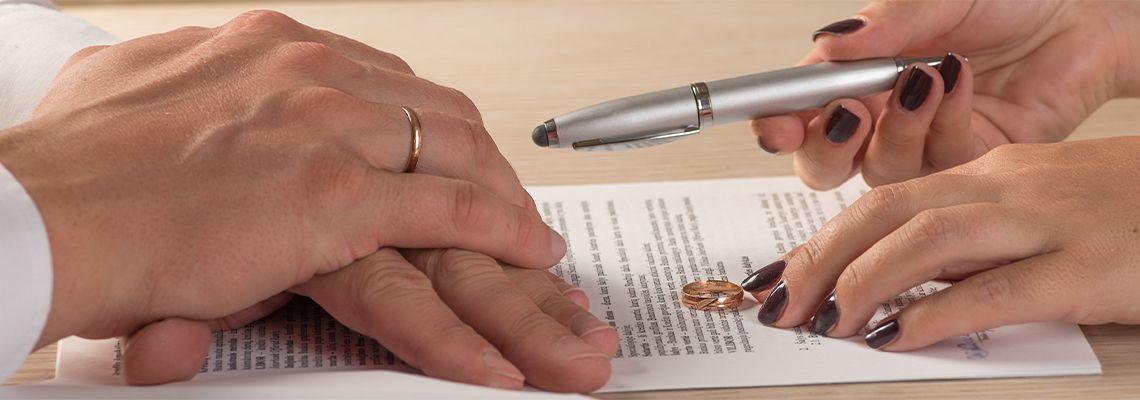
The very nature of mediation suggests a cooperative, less adversarial approach to resolving disputes. Most of the time, you don't need an attorney by your side during this process.
Mediation is designed to help individuals resolve conflicts without the need for a judge or court proceedings. The rules are simple and easy to comprehend, so many people find they can manage the process on their own.
Yet, there are times when having legal counsel can provide significant benefits. An attorney can offer valuable insights and advice, helping you make informed decisions that empower your goals and your family's future. They can help you better understand your rights and obligations, providing a clearer picture of potential outcomes.
So, while an attorney isn't a requirement in mediation, their presence can definitely be advantageous. Let's get into some of the specifics.
Examples of Family Law Cases Where an Attorney's Support Is Critical
Because of its collaborative nature, mediation serves as an ideal arena for numerous types of family law cases. In divorce cases, an attorney can assist in avoiding litigation by employing mediation effectively. Courts often promote the use of mediation in child custody and support matters, recognizing its potential to foster better relationships and agreements. But there are some cases where we'd recommend hiring an attorney for essential support in addition to mediation. Here are some examples:
High-net-worth Divorce proceedings: While mediation can help couples work through their issues amicably, divorce is a complicated affair. Mediation agreements don't address the finer details that need to be considered during a divorce, such as property division, child support, and spousal maintenance. An attorney's insight can ensure you receive a fair settlement.
Child custody disputes: These are often emotionally charged and require careful consideration of several factors. An experienced attorney can provide valuable guidance to help you make decisions that are in the best interest of your child.
Domestic violence cases: Mediation may not be appropriate for couples dealing with domestic violence, as it requires a level playing field where both parties feel comfortable expressing their needs and concerns. In such situations, an attorney can help ensure your safety and protect your rights.
Ultimately, the goal is to achieve a resolution that is fair and in the best interests of all parties involved, and sometimes that requires a balance of mediation and legal advocacy.
When to Consider an Attorney During Mediation
Apart from the instances mentioned above, you may want to consider hiring an attorney if:
You're unsure of the legal implications: If you're not well-versed in the law, it's understandable that you may have concerns about making important decisions during mediation. An attorney's knowledge and experience can help address any legal questions or concerns that may arise during the process.
You're dealing with complex financial matters: Mediation can be a great way to resolve financial disputes, but it may not always cover all the intricacies of high-value assets and investments. An attorney who specializes in finances can provide valuable insights and ensure your interests are protected.
You and your spouse can't reach an agreement: Mediation is a voluntary process, and it's possible that you and the other party may not be able to come to an agreement even after multiple sessions. In such cases, having an attorney by your side can help facilitate negotiations and potentially lead to a resolution.
Can Mediation Turn Into Litigation?
Absolutely, mediation can turn into litigation. While mediation is a process focused on helping both parties meet in the middle, it's not always successful. If the parties involved can't reach an agreement during mediation, the dispute might have to move forward to litigation.
In litigation, unlike mediation, a judge or jury makes the decisions. It's a more formal and structured process, which can provide a greater degree of certainty and predictability.
But remember, litigation often results in a clear winner and loser, unlike mediation which aims for a mutually beneficial resolution.
It's also important to note that even if the parties reach an agreement during mediation, it becomes legally binding only if it's written down and approved by the court. If one party dishonors this approved mediation agreement, then yes, the situation can lead to litigation.
We're Here if You Need Legal Advice
While a lawyer isn't strictly necessary for mediation, there are many situations where their knowledge can be invaluable.
So, do you still need an attorney for mediation? The answer ultimately depends on your individual circumstances. If you're unsure, we'd recommend consulting with a lawyer in your area who offers free consultations. They can help you determine whether hiring an attorney for mediation is the right choice for your case.
If you have any questions or need legal advice about mediation or other legal matters, contact us at Pesch Law Office PC. We're here to provide guidance and support tailored to your specific needs.
Whether you're in Denver, Boulder, Fort Collins, Colorado Springs, or nearby areas, we've got you covered. Count on us to be there for you wherever you are in our beautiful state.



